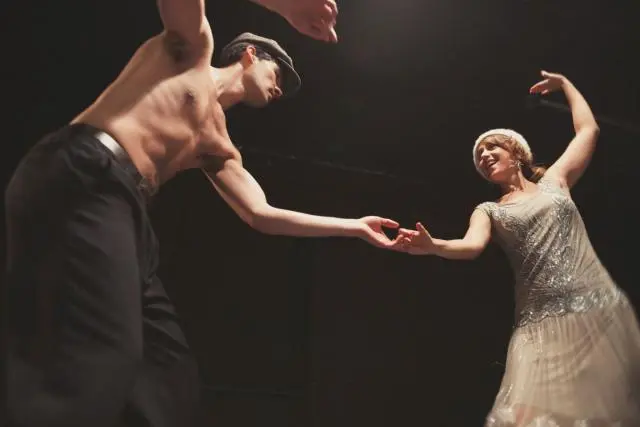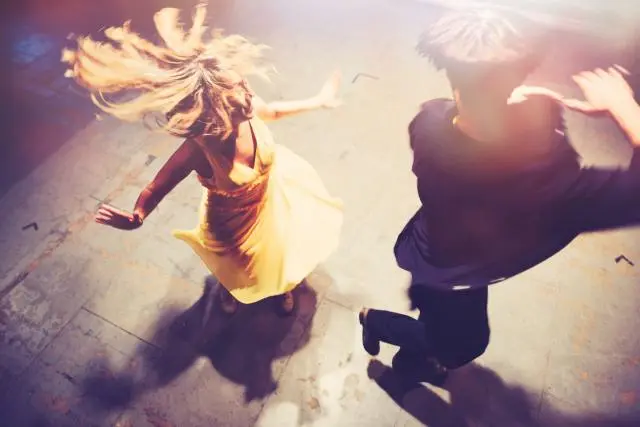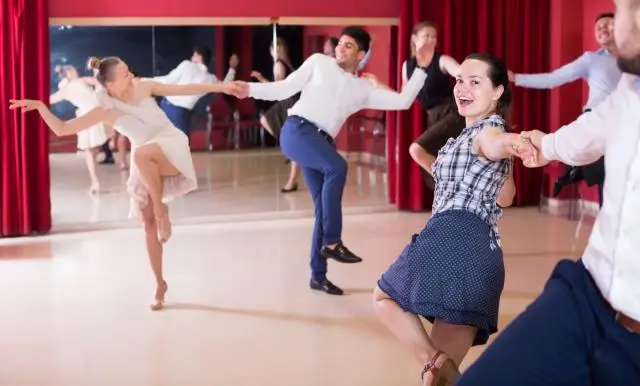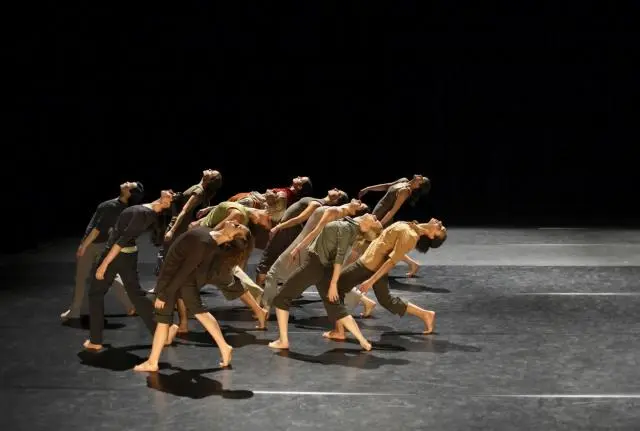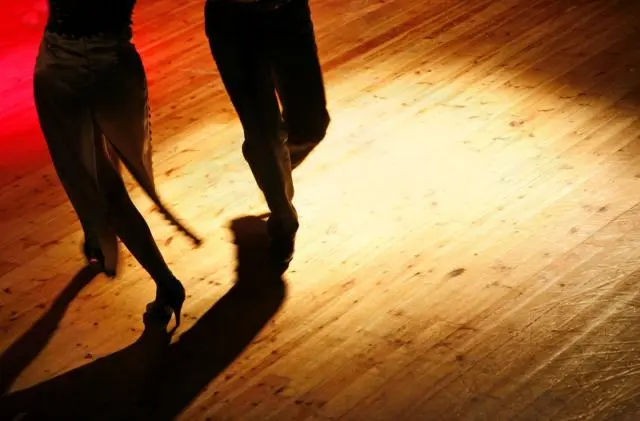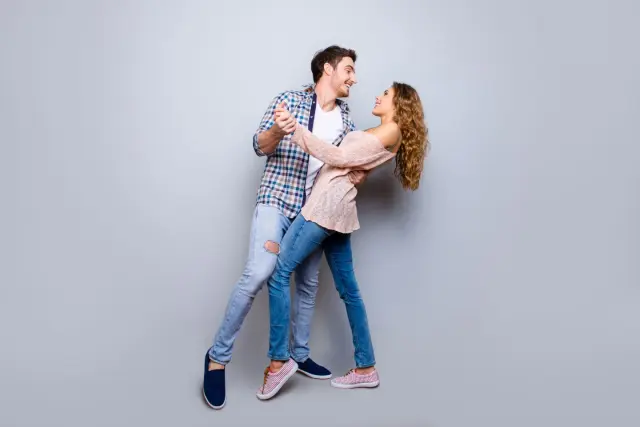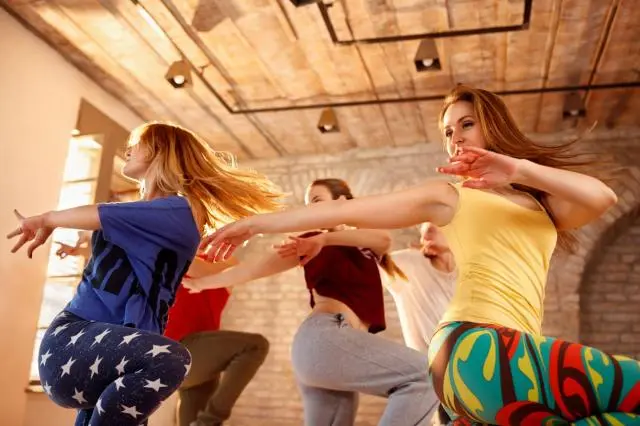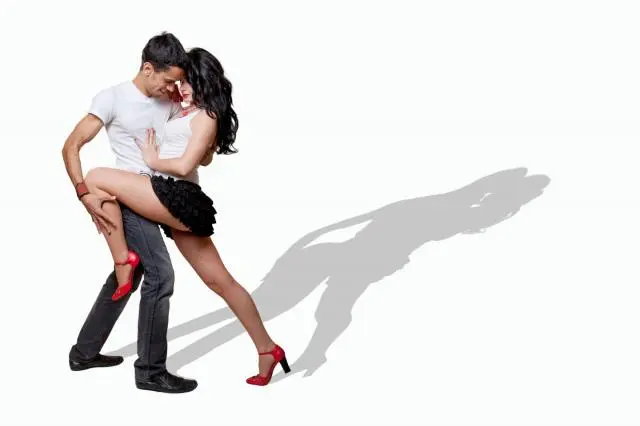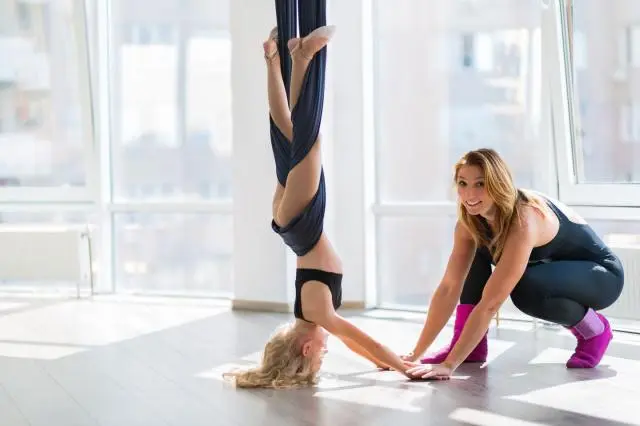
What you need to know about Silk
Silk: A Dance in the Air
Silk, or Aerial Silk, is a dance form often performed in a circus or variety show. Using a specially crafted fabric attached to the ceiling, one dances, so to speak, in the air. This style of dance enhances body awareness and provides an incredible amount of fun. The dance is a form of aerial acrobatics.
In this unique style of dance, you learn about climbing techniques, specific figures, so-called drops that make it look like you're falling from the ceiling, and many other tricks to master aerial acrobatics. You will also be well-informed in a beginner's course about the characteristics of the fabric, its necessary length, width, and elasticity.
The dance takes place entirely without contact with the floor. Movements are executed in the air using one's own body strength and the support of the fabric. You can imagine that your personal body awareness grows rapidly, and you learn to move elegantly and rhythmically, like a flying bird. An exciting aerial acrobatics show is then inevitable.
Silk Dance Styles
Silk dance, also known as aerial silks or aerial fabric, offers a diverse range of styles to explore, each with its own unique characteristics and expressive potential.
Contemporary Aerial Silk:
-
Blends elements of modern dance, ballet, and improvisation to create flowy, expressive movements that tell a story or evoke emotions.
-
Focuses on artistic interpretation and musicality, often incorporating props and costume changes for added storytelling.
-
Examples: Choreographies by Cirque du Soleil, aerial dance companies like Vertical Dance Theatre.
Aerial Acrobatics:
-
Emphasizes technical prowess and dynamic movements like drops, spins, and intricate foot locks.
-
Requires high levels of strength, flexibility, and control.
-
Often seen in competitive settings or circus performances, pushing the boundaries of what's possible with the silks.
-
Examples: Competitions like the Aerial Fabric World Championships, shows by aerial acrobat teams like Gravity Defy.
Aerial Ballet:
-
Merges the grace and elegance of classical ballet with the aerial environment.
-
Prioritizes beautiful poses, controlled transitions, and precise footwork adapted to the silks.
-
Offers a visually stunning and sophisticated style, showcasing the dancer's artistry and technique.
-
Examples: Performances by companies like Ballet des Airs, choreographies by aerial dance artists like Silke Pan.
Aerial Yoga:
-
Combines yoga postures and breathing exercises with elements of aerial suspension.
-
Focuses on mindfulness, relaxation, and improving flexibility and core strength.
-
Offers a unique way to experience yoga practice from a different perspective, creating a sense of weightlessness and calm.
-
Examples: Classes or workshops specifically designed for aerial yoga, studios offering silk yoga sessions.
Tribal Fusion:
-
Draws inspiration from various ethnic dance styles, often incorporating cultural elements like costumes, props, and music.
-
Can be highly energetic and rhythmic, or focus on fluid, grounded movements.
-
Celebrates cultural diversity and individuality through innovative interpretations and storytelling.
-
Examples: Performances by fusion troupes like Bellydance Superstars, independent aerial artists exploring tribal styles.
Experimental:
-
Pushes the boundaries of traditional silk dance by incorporating unconventional movements, objects, or rigging setups.
-
Creates innovative visuals and explores new possibilities for expression and physical challenges.
-
Often seen in independent artist performances, collaborations with other art forms, or site-specific aerial installations.
-
Examples: Shows by artists like Lisa Donovan, aerial dance companies exploring contemporary performance art.
Mastering the Art of Aerial Silks Near You!
Have you ever been mesmerized by the graceful strength and artistry of aerial silk dancers? Do you dream of defying gravity and soaring through the air? Well, dream no more! Aerial silk classes, also known as aerial fabric or aerial ribbons, are becoming increasingly accessible, offering a unique and empowering workout experience for anyone, regardless of prior experience. But where do you begin your aerial journey? Let's guide you through finding the perfect silk dance classes near you!
Unveiling the Aerial Landscape:
The world of aerial silks is diverse, catering to various interests and skill levels. Here are some factors to consider when searching for classes:
Your goals: Do you envision graceful poses and storytelling? Are you driven by dynamic acrobatics? Or do you seek a mindful fitness practice in the air? Defining your aspirations will help narrow your search.
Experience level: Most studios offer classes for beginners, intermediate, and advanced students. Be honest about your abilities to ensure a safe and enjoyable learning experience.
Location: Convenience is key! Search for studios within a comfortable travel distance and consider public transportation accessibility.
Studio atmosphere: Do you thrive in a social, group setting, or prefer personalized attention in private lessons? Knowing your preferences will help you find a studio that fits your personality.
Dance Connects
For centuries, dance has connected people and cultures. The rhythmic movements to the evocative music release endorphins and contribute to a healthy sense of well-being. Those who dance regularly are proven to be happier. Even a dance evening once a week can positively impact your overall well-being.
Moreover, through dancing, you can meet new people. Are you still looking for a suitable dance partner because no one in your circle of friends is interested in dancing or in the same dances as you? On Lets-Dance, you can find a suitable dance partner in a few steps. Considering your place of residence and the specific dance that interests you, possible dance partners will be displayed. The website is also excellent if you are new to a city and want to meet new people.
The Health Benefits of Dancing
But dancing is not only something for the health of your soul but also for your body. Dancing requires an incredible number of muscles throughout the body, keeping you fit. It promotes good posture and an upright gait, and even your brainwaves are stimulated by the concentration required to move in time.
Dancing can lead to the formation of new nerve cells in the brain through regular and controlled movements. This helps prevent dementia or its progression.
Additionally, you burn many calories while dancing. Depending on the dance, you can burn up to 300 calories per hour and strengthen your body's muscles in the long run. Those who dance frequently also lower the cortisol level in their blood. Cortisol is the so-called stress hormone in the body. Tensions in your body are released, and you find inner peace more quickly.
So, what are you waiting for? On Lets-Dance, you can find not only the right partner but also the right dance course right in your vicinity.
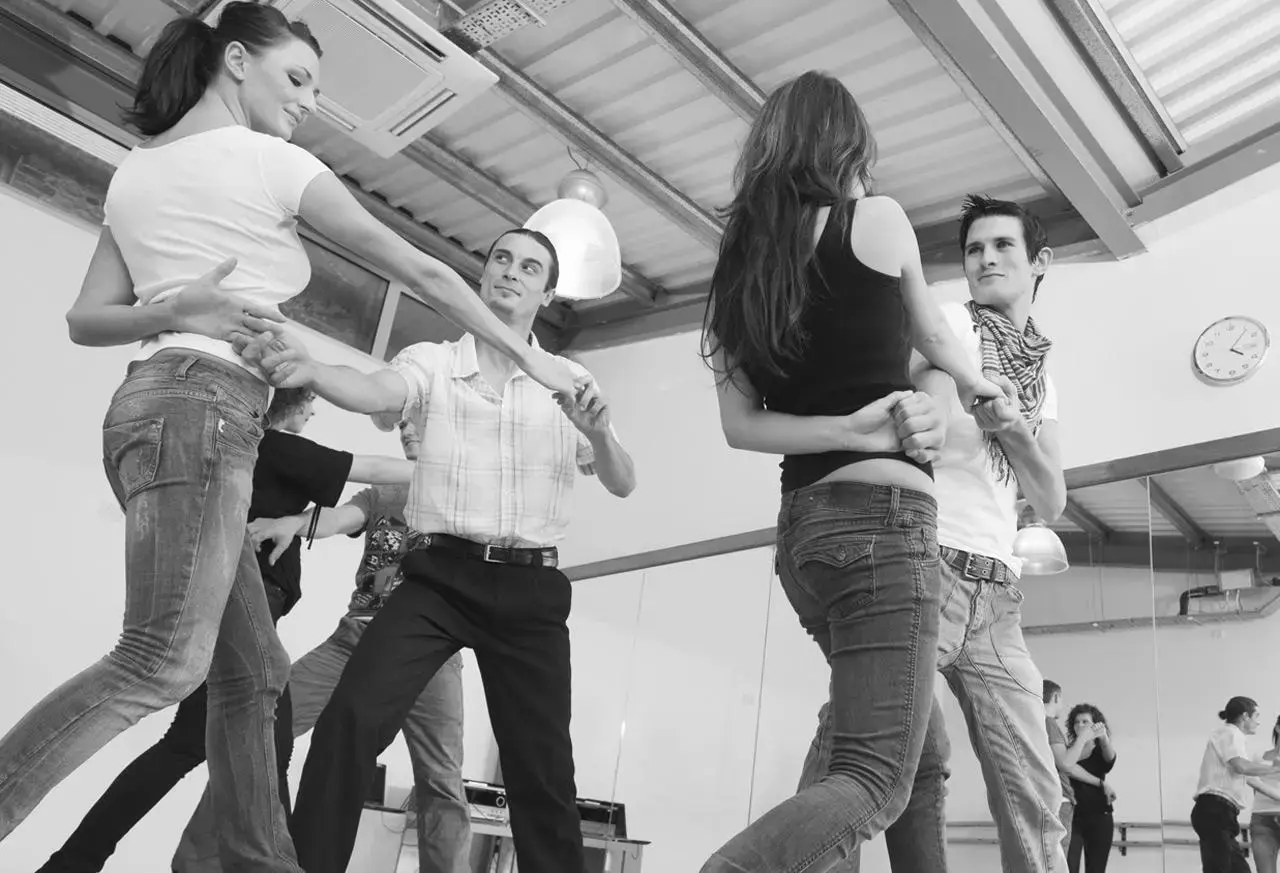
Create your dance profile on Lets-Dance
Dancewear, shoes & accessories
Register your dance school
Popular blog posts about dancing
